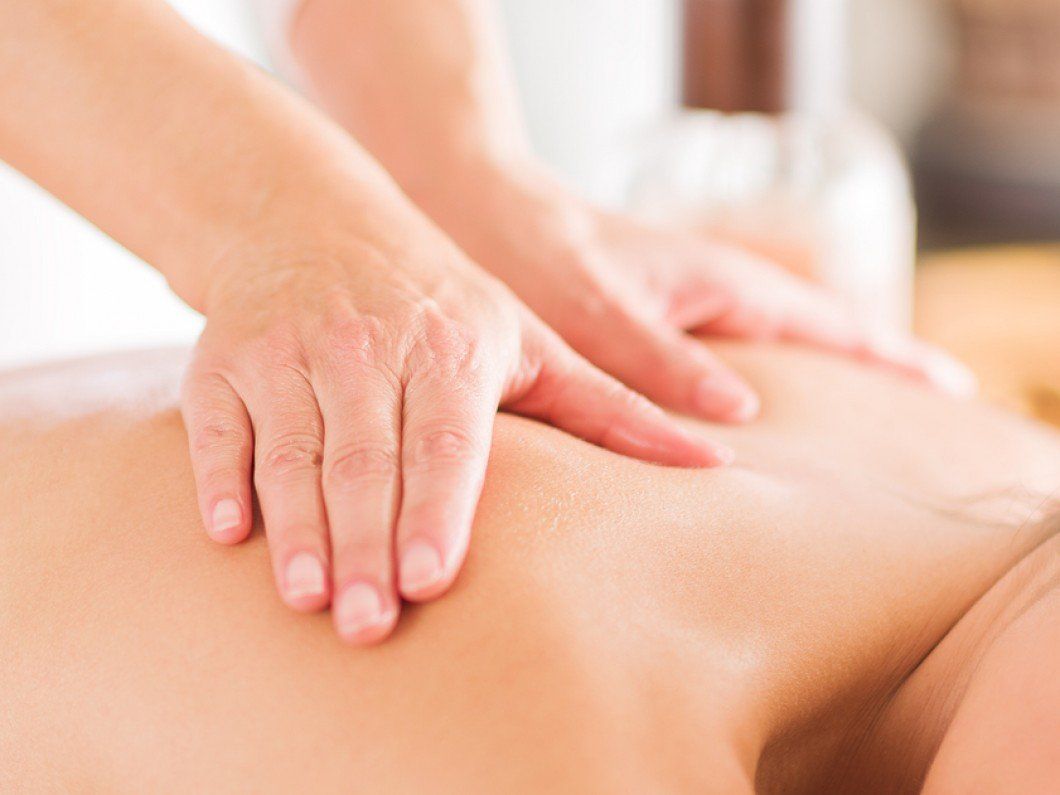Benefits of Massage
Benefits of Massage
If you think massage and other forms of bodywork are a once in a while treat for a special occasion or a last resort to relieving your pain, here is a list of benefits massage promotes for each system of your body. A massage a month, along with a healthy lifestyle, can keep the doctor away and a host of illness and diseases at bay, too!

EFFECTS OF MASSAGE ON THE SYSTEMS OF THE BODY
Cardiovascular System
Lymph System
The Skin
The Nervous System
The Muscles
Connective Tissue
The Respiratory System
The Digestive System
The Urinary System
MASSAGE EFFECTS ON THE LYMPH SYSTEM
Promotes lymph circulation by removing waste from the system.
Reduces lymphedema (swelling)
Increases the number and function of natural killer cells, which are a type of blood cell.
MASSAGE EFFECTS ON THE NERVOUS SYSTEM
Reduces stress by activating the para sympathetic (rest and digest) nervous system.
Reduces anxiety
Increases Alpha and Delta wave activity which are related to relaxation and sleep.
Increased dopamine levels which are associated with lowering stress and reduced depression.
Increases seratonin levels which helps reduce stress and depression.
Reduces cortisol levels, epinephrine and nor-epinephrine. All are hormones released during stress which inhibit immune function.
EFFECTS OF MASSAGE ON CONNECTIVE TISSUE
Reduces excessive scar tissue
Increases mineral retention of nitrogen, sulfur, and phosphorus in bone.
Promotes fracture healing
Reduces cellulite
EFFECTS OF MASSAGE ON THE DIGESTIVE SYSTEM
Promotes evacuation of the colon
Scheduling
Relieves constipation
Relieves colic and intestinal gas
Stimulates digestion
MASSAGE EFFECTS ON THE CARDIOVASCULAR SYSTEM
Dilates blood vessels, aids in circulation and lowering blood pressure
Improves circulation: massage strokes help push blood back to the heart.
Decreases blood pressure: both diastolic and systolic readings decline and last approx. 40 minutes after massage session.
Replenishes nutrients through improved circulation of blood and oxygen to the cells and tissue.
Promotes rapid removal of metabolic waste.
Reduces Ischemia (limited blood flow in organ or body part which causes pain and trigger points)
Reduces heart rate and lowers pulse.
Increases stroke volume (the amount of blood ejected from the left ventricle during each contraction). Decreased heart rate allows more blood to fill the ventricles, which means a larger volume of blood is pushed through the heart with each contraction.
Increases Red Blood Cell Count - The number and functioning of RBC's and their oxygen carrying capacity is increased. Also increases White Blood Cell Count.
MASSAGE EFFECTS ON THE SKIN
Increases skin temperature
Improved circulation brings nutrients to the skin, improving skin condition.
Stimulates sebaceous (sweat) glands and reduces skin dryness.
Reduces scar tissue by reducing the formation of excessive keloid tissue.
EFFECTS OF MASSAGE ON THE MUSCLES
Relieves muscular tension, restrictions, and spasms.
Relaxes muscles
Reduces muscle soreness and fatigue
Reduces trigger points
Increases range of motion
Improves balance and posture
Improves motor skills
Increases flexibility
EFFECTS OF MASSAGE ON THE RESPIRATORY SYSTEM
Reduces respiration rate which relaxes the muscles and reduces stress
Strengthens respiratory muscles
Decreases sensation of shortness of breath
Decreases asthma attacks
Aids in the loosening and discharge of phlegm
EFFECTS OF MASSAGE ON THE URNIARY SYSTEM
Increases urine output by activating dormant capillary beds and lymph fluid which filters through the kidneys.
Copyright © 2021 Full Circle Wellness , all rights reserved.
415 Route 9 Suite #4, Somers Point, NJ 08244 (609) 839-3810

